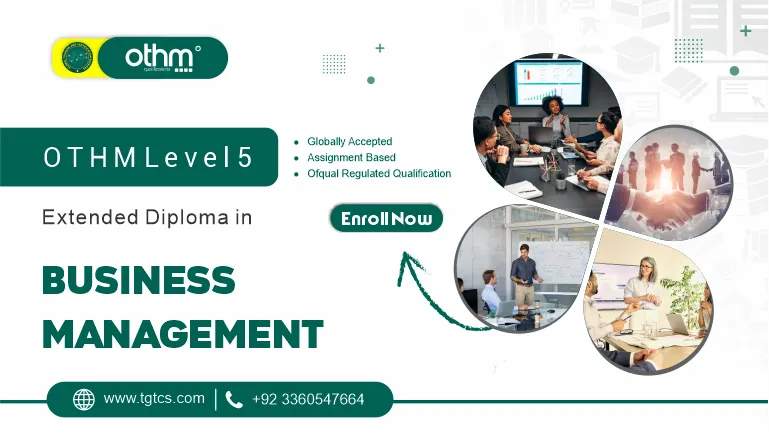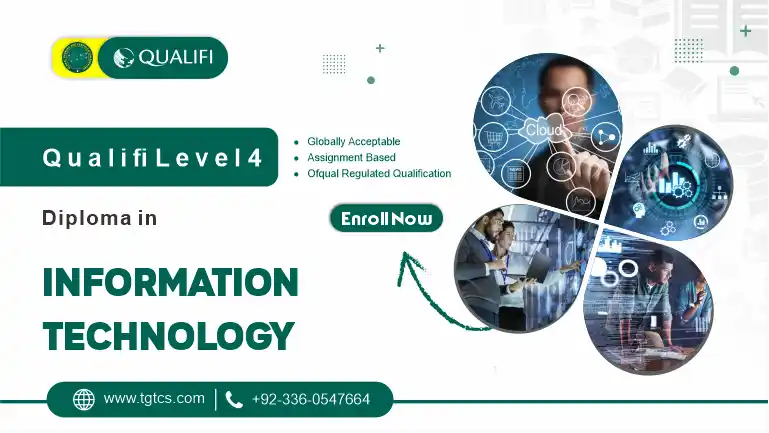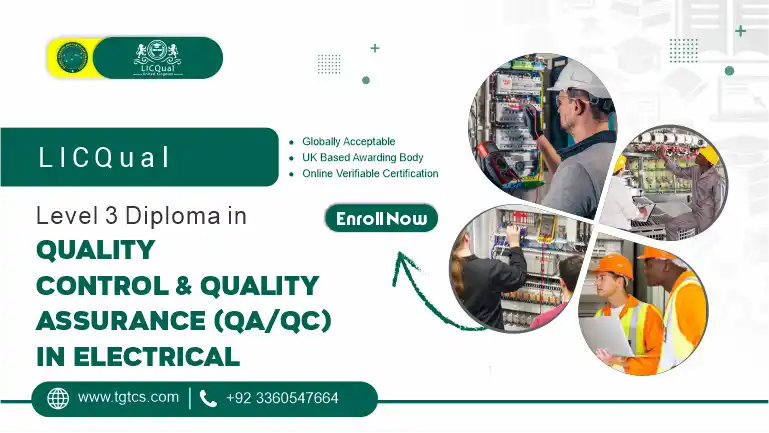ICTQual Level 6 Diploma in Civil Engineering 360 Credits – Three Years
The ICTQual Level 6 Diploma in Civil Engineering is an advanced qualification designed to prepare students for leadership roles in the civil engineering industry. With 360 credits and a three-year duration, this course provides in-depth knowledge and practical skills necessary for designing, constructing, and maintaining complex infrastructure projects.
The ICTQual Level 6 Diploma in Civil Engineering is a comprehensive, three-year course that equips students with the expertise needed to work in civil engineering and related sectors. With a focus on advanced engineering principles, the course combines theoretical knowledge with practical skills. The program covers critical topics such as structural analysis, construction project management, soil mechanics, and environmental engineering.
The ideal candidate for this program is someone who has a strong interest in engineering, problem-solving, and building infrastructure. You should have a background in mathematics and science, with a passion for designing and constructing sustainable solutions. Additionally, if you enjoy working in a team and have leadership aspirations, this course will provide you with the skills and qualifications necessary to excel in the field.
The ICTQual Level 6 Diploma in Civil Engineering (360 Credits – Three Years) offers an in-depth education that prepares graduates for a successful career in civil engineering. With a focus on both technical skills and leadership, this diploma opens doors to numerous career opportunities in construction, infrastructure development, environmental engineering, and more.
The Global Training and Certification Services (TGTCS) is Directly Approved Training Centre of ICTQual
The ICTQual Level 6 Diploma in Civil Engineering (360 Credits – Three Years) is an advanced qualification designed for individuals aiming to build a successful career in civil engineering. This comprehensive three-year program provides students with a deep understanding of engineering principles, construction technologies, project management, and sustainable practices. The curriculum covers key topics such as structural analysis, transportation engineering, geotechnical engineering, environmental engineering, and advanced construction methods.
Graduates of the course gain the technical expertise and practical skills required to design, construct, and manage large-scale infrastructure projects. They are equipped to take on roles such as civil engineer, structural engineer, project manager, or environmental consultant. The diploma also offers a pathway to professional certifications, including Chartered Engineer (CEng) status, and further academic study.
With a strong focus on both theoretical knowledge and hands-on learning, the ICTQual Level 6 Diploma in Civil Engineering ensures that students are well-prepared for leadership roles in the rapidly evolving civil engineering sector.
Mandatory Units
The Units of Level 6 Diploma in Civil Engineering 360 Credits – Three Years as :
Year 1: Foundation and Core Engineering Concepts (120 Credits)
- Introduction to Civil Engineering
- Mathematics for Engineers
- Engineering Mechanics
- Construction Materials
- Surveying and Measurement
- Environmental Science for Engineers
- Technical Drawing and CAD
- Hydraulics and Fluid Mechanics
- Geology and Soil Mechanics
- Health and Safety in Construction
- Construction Methods and Technologies
- Communication and Professional Skills
Year 2: Advanced Engineering Topics and Specializations (120 Credits)
- Structural Analysis and Design
- Geotechnical Engineering
- Transportation Engineering
- Water Resources Engineering
- Building Information Modeling (BIM)
- Advanced Surveying and GPS Technologies
- Steel and Concrete Structures
- Sustainable Construction Practices
- Highway Design and Maintenance
- Construction Contracts and Law
- Project Planning and Management
- Engineering Economics
Year 3: Professional Practice, Innovation, and Capstone Projects (120 Credits)
- Professional Ethics and Responsibilities in Civil Engineering
- Advanced Structural Engineering Applications
- Bridge Design and Construction Management
- Foundation Engineering for Complex Projects
- Urban Infrastructure Planning and Development
- Earthquake-Resistant Structural Design
- Construction Site Management and Supervision
- Environmental Impact Assessment for Civil Projects
- Risk Assessment and Mitigation in Construction Projects
- Entrepreneurship and Leadership in Civil Engineering
- Smart Cities and Sustainable Infrastructure
- Capstone Project (Professional Practice)
Here are the learning outcomes for each study unit in the ICTQual Level 6 Diploma in Civil Engineering program:
Year 1: Foundation and Core Engineering Concepts (120 Credits)
- Introduction to Civil Engineering
- Understand the scope and importance of civil engineering in infrastructure development.
- Recognize the professional responsibilities and ethical practices in civil engineering.
- Mathematics for Engineers
- Apply mathematical techniques, including calculus, algebra, and statistics, to solve engineering problems.
- Develop analytical skills for engineering applications.
- Engineering Mechanics
- Analyze forces and moments in static and dynamic systems.
- Apply mechanical principles to solve practical engineering challenges.
- Construction Materials
- Understand the properties and uses of construction materials such as concrete, steel, and timber.
- Evaluate material suitability for different construction applications.
- Surveying and Measurement
- Conduct precise land measurements using surveying instruments.
- Interpret survey data for construction planning.
- Environmental Science for Engineers
- Understand the environmental impacts of engineering projects.
- Apply sustainable practices in engineering solutions.
- Technical Drawing and CAD
- Create accurate technical drawings using traditional and computer-aided design (CAD) tools.
- Interpret and produce engineering schematics and blueprints.
- Hydraulics and Fluid Mechanics
- Analyze fluid behavior in engineering systems.
- Design basic hydraulic systems for infrastructure projects.
- Geology and Soil Mechanics
- Understand geological processes and their impact on construction projects.
- Evaluate soil properties for foundation design.
- Health and Safety in Construction
- Identify potential workplace hazards in construction environments.
- Apply safety standards and protocols to minimize risks.
- Construction Methods and Technologies
- Understand modern construction techniques and technologies.
- Evaluate their application in various engineering projects.
- Communication and Professional Skills
- Develop clear and effective professional communication skills.
- Work collaboratively within multidisciplinary teams.
Year 2: Advanced Engineering Topics and Specializations (120 Credits)
- Structural Analysis and Design
- Analyze structural systems for stability and strength.
- Design components such as beams, columns, and trusses.
- Geotechnical Engineering
- Evaluate soil and rock mechanics for advanced foundation designs.
- Apply geotechnical principles to address site-specific challenges.
- Transportation Engineering
- Plan and design roadways and transportation systems.
- Assess traffic flow and implement solutions for improved safety.
- Water Resources Engineering
- Design systems for effective water distribution and wastewater management.
- Analyze hydrological data for infrastructure planning.
- Building Information Modeling (BIM)
- Utilize BIM software for designing and managing construction projects.
- Integrate BIM techniques to improve project efficiency and collaboration.
- Advanced Surveying and GPS Technologies
- Apply GPS technology for precise land surveying and mapping.
- Implement advanced surveying techniques for complex projects.
- Steel and Concrete Structures
- Design and analyze steel and concrete structures for various applications.
- Evaluate the performance of structural elements under different conditions.
- Sustainable Construction Practices
- Implement sustainable methods to minimize environmental impacts.
- Promote energy-efficient construction techniques.
- Highway Design and Maintenance
- Design highways and develop maintenance strategies for long-term usability.
- Assess material and technology options for road construction.
- Construction Contracts and Law
- Understand the legal frameworks governing construction projects.
- Manage contractual obligations and disputes effectively.
- Project Planning and Management
- Develop project schedules and allocate resources effectively.
- Implement risk management strategies to ensure successful project delivery.
- Engineering Economics
- Evaluate economic factors influencing engineering decisions.
- Conduct cost-benefit analyses for infrastructure projects.
Year 3: Professional Practice, Innovation, and Capstone Projects (120 Credits)
- Professional Ethics and Responsibilities in Civil Engineering
- Understand ethical principles and professional responsibilities in engineering.
- Apply ethical decision-making in project execution.
- Advanced Structural Engineering Applications
- Design and assess advanced structural systems, including high-rises and bridges.
- Use cutting-edge tools for structural analysis.
- Bridge Design and Construction Management
- Plan and execute bridge designs, considering both functionality and aesthetics.
- Manage bridge construction processes efficiently.
- Foundation Engineering for Complex Projects
- Design foundations for complex structures such as skyscrapers and offshore platforms.
- Address geotechnical challenges using innovative solutions.
- Urban Infrastructure Planning and Development
- Plan sustainable urban infrastructure, including utilities and transport systems.
- Assess the impact of urban development on communities and ecosystems.
- Earthquake-Resistant Structural Design
- Design structures to withstand seismic activities.
- Apply international standards for earthquake resilience.
- Construction Site Management and Supervision
- Oversee construction site operations to ensure efficiency and safety.
- Manage on-site teams to meet project milestones.
- Environmental Impact Assessment for Civil Projects
- Conduct environmental assessments for large-scale civil projects.
- Implement mitigation strategies to minimize environmental damage.
- Risk Assessment and Mitigation in Construction Projects
- Identify potential risks in construction projects.
- Develop and implement risk mitigation strategies to ensure project continuity.
- Entrepreneurship and Leadership in Civil Engineering
- Develop leadership skills for managing engineering firms.
- Explore entrepreneurial opportunities in the civil engineering sector.
- Smart Cities and Sustainable Infrastructure
- Integrate smart technologies into infrastructure planning.
- Promote sustainability through innovative urban solutions.
- Capstone Project (Professional Practice)
- Apply learned concepts to design and execute a comprehensive civil engineering project.
- Demonstrate problem-solving, innovation, and professional skills in real-world applications.
The ICTQual Level 6 Diploma in Civil Engineering offers numerous advantages, providing students with the knowledge, skills, and qualifications needed to excel in the civil engineering field. Here are some of the key benefits of completing this advanced course:
- Comprehensive Skill Set
The course covers a wide range of essential topics, including structural analysis, transportation engineering, geotechnical engineering, environmental science, and project management. Graduates develop a robust, well-rounded skill set to tackle diverse engineering challenges. - Advanced Knowledge in Civil Engineering
Students gain in-depth knowledge of complex engineering principles, enabling them to handle advanced civil engineering projects. With specialized courses in areas like sustainable construction, smart cities, and earthquake-resistant design, graduates are equipped for modern industry demands. - Practical Learning and Real-World Application
The program emphasizes practical skills alongside theoretical knowledge. Hands-on experience with tools like Building Information Modeling (BIM) and advanced surveying techniques prepares students for immediate application in the workforce. - Pathway to Professional Recognition
Completing the Level 6 Diploma prepares students for professional certifications and further qualifications, such as Chartered Engineer (CEng) status. This enhances career prospects and opens doors to leadership and specialized roles within the engineering sector. - Career Flexibility and Diverse Opportunities
Graduates are qualified for various roles in civil engineering, including positions as structural engineers, project managers, transportation planners, and environmental consultants. The broad curriculum allows flexibility to specialize in areas such as sustainable infrastructure, construction site management, and water resources engineering. - Enhanced Earning Potential
With a Level 6 qualification, graduates can access higher-paying job opportunities within the civil engineering sector. The advanced expertise acquired through this diploma leads to roles with greater responsibility and higher salaries. - Industry-Relevant Expertise
The course is designed to meet the latest industry standards and practices, ensuring that students are well-prepared to handle evolving technologies and challenges in the construction and infrastructure sectors. Topics such as smart cities and sustainable practices align with current global trends. - Leadership and Entrepreneurial Opportunities
Graduates are equipped with leadership, project management, and entrepreneurial skills, enabling them to take on managerial roles or even start their own civil engineering business. The curriculum includes business aspects of civil engineering, promoting innovation and leadership in future endeavors. - Sustainability Focus
The course emphasizes sustainable construction and environmental impact assessment, making graduates well-prepared to implement eco-friendly and resource-efficient solutions in their future projects, a key demand in today’s construction industry. - Capstone Project for Practical Experience
In the final year, students engage in a capstone project, allowing them to apply their learning to a real-world civil engineering challenge. This hands-on experience helps build problem-solving skills, enhances creativity, and improves professional readiness. - Global Career Opportunities
The international recognition of the ICTQual Level 6 Diploma means that graduates can pursue career opportunities not just in their home countries, but globally, as civil engineering expertise is in demand worldwide. - Flexible Learning Options
The program is designed with flexibility in mind, allowing students to balance their education with professional or personal commitments. The diploma can be studied through a variety of learning modes, catering to different needs and schedules.
By completing the ICTQual Level 6 Diploma in Civil Engineering, students position themselves as highly qualified professionals in a fast-growing and diverse industry. With strong career prospects, the opportunity to specialize in cutting-edge engineering practices, and the potential for professional recognition, this diploma provides the ideal foundation for a successful career in civil engineering.
The ICTQual Level 6 Diploma in Civil Engineering is designed for motivated individuals who are passionate about pursuing a career in civil engineering and want to gain advanced knowledge and skills in the field. The ideal learner for this course typically exhibits the following qualities:
- Aspiring Civil Engineers
The course is perfect for individuals who are looking to deepen their understanding of civil engineering and seek to work on large-scale infrastructure projects. Those with a background in engineering or construction who wish to specialize in civil engineering will benefit greatly. - Problem Solvers with Analytical Skills
Ideal learners are individuals who enjoy solving complex engineering challenges. The course requires a strong aptitude for analytical thinking, especially in areas such as structural analysis, geotechnical engineering, and environmental impact assessment. The ability to think critically and apply engineering principles is crucial. - Technologically Inclined
Students who are comfortable using modern technology and digital tools will thrive in this program. The course incorporates advanced technologies such as Building Information Modeling (BIM), surveying tools, and CAD software, so learners should be eager to master these tools to enhance their practical skills. - Future Leaders in Engineering
This course is designed for those who aspire to take on leadership roles within the civil engineering field. Ideal learners should have an interest in project management, teamwork, and leading construction projects or engineering teams in the future. The course develops skills in leadership, communication, and project planning. - Environmental Enthusiasts
Given the growing importance of sustainability in the construction industry, learners with a strong interest in environmental conservation and sustainable practices will find the course especially appealing. The curriculum includes subjects like sustainable construction methods and environmental impact assessments. - Dedicated and Self-Motivated Learners
The ICTQual Level 6 Diploma in Civil Engineering is a rigorous, three-year program that requires dedication and commitment. Ideal learners should be prepared to invest time and effort into their studies and possess the self-discipline to manage challenging coursework, assignments, and projects. - Hands-on Learners
Since the course blends theoretical knowledge with practical applications, ideal learners are those who enjoy hands-on learning. The curriculum is designed to equip students with the practical skills needed for real-world engineering scenarios, and learners should be eager to engage with both the technical and practical aspects of civil engineering. - Career-Oriented Individuals
Learners who are focused on career progression and professional development will benefit from this course. The program prepares students for professional certifications, such as Chartered Engineer (CEng), and opens up diverse career opportunities in civil engineering, project management, and environmental consultancy. - Global Thinkers
Ideal learners for this program are individuals with a global mindset who are interested in working on international projects. The knowledge gained from this course is applicable worldwide, and students who want to work in a global civil engineering market will find the course’s international relevance valuable. - Engineering Graduates or Professionals Looking to Specialize
This course is ideal for individuals who have already completed a Level 5 or equivalent qualification in engineering or construction and wish to advance their expertise in civil engineering. It is also well-suited for professionals already working in construction or related fields who wish to specialize in civil engineering or pursue higher roles.
Graduates of the ICTQual Level 6 Diploma in Civil Engineering (360 Credits) are well-positioned to pursue diverse career opportunities and further educational advancements in the civil engineering field. This qualification provides a robust foundation in engineering principles, advanced technical knowledge, and practical skills, unlocking multiple career and progression pathways. Potential future opportunities include:
1. Career Opportunities in Civil Engineering
The Level 6 Diploma in Civil Engineering prepares graduates for a wide range of roles within the civil engineering industry. Key job opportunities include:
- Civil Engineer:
Graduates can take on roles in designing, planning, and overseeing infrastructure projects like roads, bridges, dams, and buildings. They will be responsible for both design and project management, ensuring that projects meet required structural, safety, and environmental standards. - Structural Engineer:
Specializing in the design and analysis of buildings, bridges, and other structures, structural engineers ensure the stability and safety of these projects. - Geotechnical Engineer:
Focusing on soil and rock mechanics, geotechnical engineers assess ground conditions and design foundations for large-scale structures, ensuring the stability of construction projects. - Environmental Engineer:
Environmental engineers play a key role in sustainability, working on projects that aim to minimize the environmental impact of construction through waste management, water resources, and renewable energy solutions. - Transportation Engineer:
This role involves designing, planning, and managing transportation infrastructure, such as roads, railways, and airports, to improve traffic flow and safety. - Project Manager:
With the strong project management skills gained during the course, graduates can manage civil engineering projects, ensuring they are completed on time, within budget, and to specifications. - Construction Manager:
Graduates can take on construction management roles, overseeing construction sites to ensure that safety protocols, budget, and schedules are met.
2. Professional Certifications and Training
Beyond the diploma, graduates can enhance their credentials with industry-recognized certifications, increasing their career prospects and specialization:
- Project Management Professional (PMP):
Graduates interested in project management can pursue the globally recognized PMP certification, which will enhance their ability to manage large-scale engineering projects effectively. - Health and Safety Certifications:
Certifications in health and safety can open up career opportunities in construction site management, risk assessment, and safety engineering. - Building Information Modeling (BIM) Certification:
As BIM is becoming integral in civil engineering, earning a BIM certification enables graduates to gain expertise in using digital technologies for project design, modeling, and management.
3. Entrepreneurship and Consultancy
For entrepreneurial-minded graduates, the technical knowledge and project management skills developed during the course provide a strong foundation for starting a business or consultancy:
- Civil Engineering Consultancy:
Graduates can establish a consultancy firm, offering expert advice on the design, construction, and management of civil engineering projects for both public and private sector clients. - Sustainable Infrastructure Solutions:
Specializing in environmentally friendly practices, graduates can advise on energy-efficient building techniques, waste management systems, and renewable energy integration in construction projects. - Construction and Project Management Services:
Graduates can launch their own construction or project management companies, handling a wide range of civil engineering projects, from residential developments to large infrastructure projects.
4. International Opportunities
The ICTQual Level 6 Diploma in Civil Engineering opens doors to international career opportunities. Many countries have a high demand for skilled civil engineers, and the qualification is recognized globally. Graduates may find employment in countries with rapidly expanding infrastructure sectors or in multinational construction firms working on global projects.
Course Overview
Course Level
Level 6
Course Units
36 Mandatory Units
Duration
Three year






